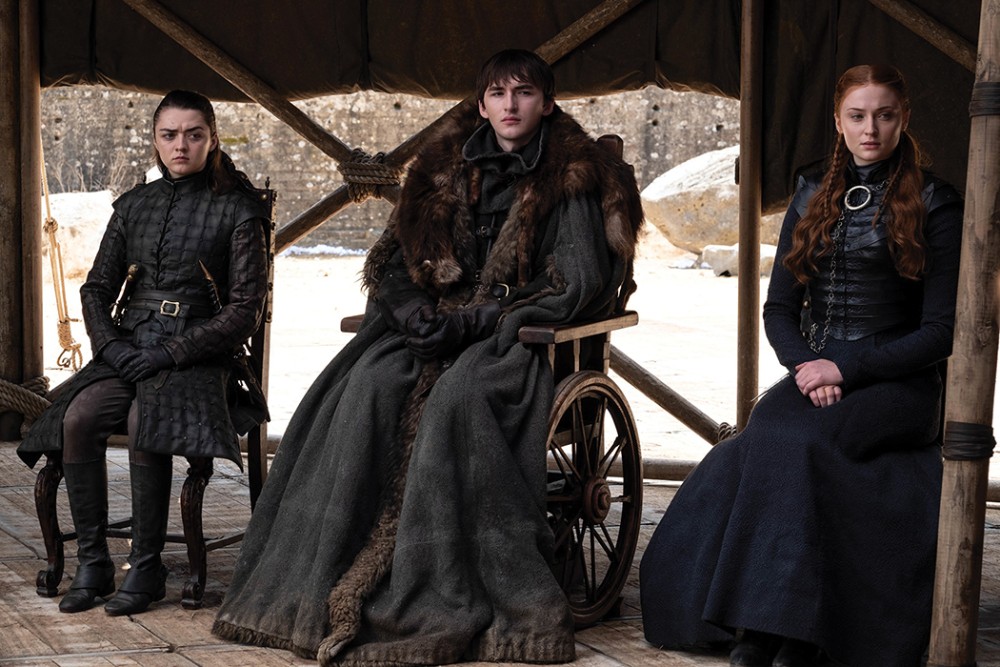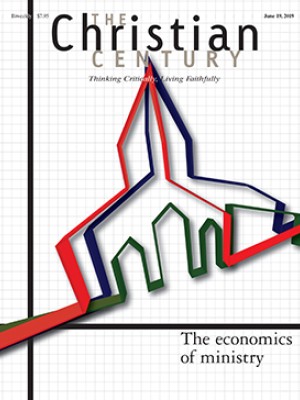What set Game of Thrones apart—and how it lost its way
The series was clear-sighted about power and misogyny, but it failed to see that vision through.

Whether or not you have watched Game of Thrones, if you live anywhere near billboards, TV commercials, or the Internet, you probably know that its final season just finished on HBO. It felt like the Last Big Show, the last of an era inaugurated in 1999 with The Sopranos, when those of us who obsess about prestige TV have felt like everyone was watching. After nine years of debating the parental lineage of the characters, we finally know who won the game for control of the fictional kingdom of Westeros. I can’t speak for all 18 million viewers, but I was disappointed with the spinelessness of the finale.
Spineless is not a word often used to describe Game of Thrones. This is the series, after all, that featured a (righteous) beheading, sibling incest, attempted murder of a child, successful murder of a political foe, allegiances with mercenaries, gruesome dismemberment by the reanimated dead, and a marital rape—all in the first episode. The show’s hallmark was its no-holds-barred depiction of violence, sex, and sexual violence.
Read our latest issue or browse back issues.
I know how lame it sounds to defend the show’s gratuitous violence by appealing to its powerful storytelling (it’s a bit like saying, “I only read Playboy for the articles”). We all have our limits, and if you have a personal stance against watching sex or violence or just a natural aversion to depictions of rape or people being flayed alive, there is plenty of other good television to watch. But at its best, the storytelling really was that good.
The show was set in a fictional pseudo-medieval kingdom (or rather, a precarious federation of seven kingdoms) where getting, keeping, or deflecting monarchical power was the central pursuit of all major characters. The story followed its characters down the paths of their own internal motivations, contradictions, and desires. This focus gave the show the courage to kill off major characters out of the blue—because tyrants sometimes do kill their rivals without warning, and paranoid revenge is not easily subverted just to produce a more palatable plotline (giving new meaning to the writerly advice “Kill your darlings”).
Characters were not, however, Machiavellian caricatures. Even in the face of extraordinary cruelty and hardship, they made choices based on love, or loyalty to family, or hope in something beyond brute force. This was especially true of the women, against whom some of the worst cruelty was directed. For all of its voyeuristic approach to violence, the show seemed acutely aware that misogyny is the natural consequence of any absolutist power structure, especially patriarchal monarchy. The women, cogs in the wheels of power that almost crushed all of them (and that did crush many), were the only ones who could imagine a different way to do things.
Arya Stark watched her father’s beheading as a young girl and grew up a wandering refugee. She rejected all the female scripts that were given her, learning instead the deadly arts that would let her escape the assigned roles (and save humanity along the way). Sansa, her older sister, was married to one brutal, incompetent man after another. For a while it seemed like she was destined to become another Cersei, the woman who opted to play the game of thrones with a brutal vengeance to rival any man. In the end, Sansa sees another way, refusing to play for the throne in favor of defending her northern people.
And then there was Daenerys (aka Mother of Dragons, Breaker of Chains), a child political refugee who was sold into marriage by her power-hungry brother and who ended up birthing three dragons from the flames of her husband’s funeral pyre, uniting the largest army Westeros had ever seen and freeing the slaves of various lands in the hopes of breaking the wheel of power altogether.
For seven seasons we were not sure where any of this was headed. Ambitions to change an entire kingdom—to break the wheel—seemed destined to meet a bloody end. I am not sure if I expected a revolution or a return to despotic tyranny, but I thought the show would have the courage to see its vision through, to follow the internal logic the narrative had set in motion. It could shock and surprise its audience because its characters did not just obey plot conventions, or speak in sound bites, or give the audiences what they wanted.
But during the last two seasons, I began to lose interest. The plotlines began to hew close to a palatable and ratings-approved middle ground. The finale was a rushed compromise, dictated almost exclusively by male characters, with the most powerful women dispatched in hasty, unsatisfying ways. More or less the wheel kept spinning, this time with a bunch of liberal-minded men promising it would be different.
I don’t want to read our own political moment too much into a show that culminated in zombie battle and dragon fire, but there is nothing satisfying in 2019 about a story that resets the game and pretends it is a revolution. There is one dragon left in Westeros; maybe he will just burn it all down.
A version of this article appears in the print edition under the title “End of the game?”







